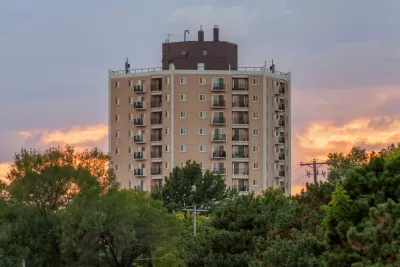After the city passed a rent stabilization ordinance, landlords are reworking leases to include new utility charges, effectively raising rents by as much as 14 percent.

“Some St. Paul landlords, facing soaring inflation and energy costs, are trying to get around the city’s new rent control law by charging tenants for utilities that used to be included in the rent,” writes Max Nesterak in the Minnesota Reformer. “It’s leading to rent increases of more than 10% for some renters in a city where landlords may only increase rent 3% a year following passage of a voter-approved ordinance that went into effect May 1,” which does not explicitly mention utilities. For some tenants, this has meant a rise in total housing costs of as much as 14 percent over the last year.
“However, the city’s rules don’t allow for landlords to circumvent the 3% cap on rent by shifting responsibility for utilities onto the tenant, according to St. Paul spokeswoman Suzanne Donovan. Nor can landlords rewrite a lease when it’s renewed to include these charges if they increase tenants’ costs by more than 3%.”
Tenant advocate and attorney Margaret Kaplan argues that “(Utilities) are part of the cost of living in the unit, and therefore, they should be included under what is considered a rent increase.” Organizations such as Kaplan’s Housing Justice Center are working with tenants and landlords to resolve disputes without going to court, but not all landlords have been receptive.
FULL STORY: Tenants say landlords are skirting St. Paul rent control with new utility charges

Alabama: Trump Terminates Settlements for Black Communities Harmed By Raw Sewage
Trump deemed the landmark civil rights agreement “illegal DEI and environmental justice policy.”

Study: Maui’s Plan to Convert Vacation Rentals to Long-Term Housing Could Cause Nearly $1 Billion Economic Loss
The plan would reduce visitor accommodation by 25% resulting in 1,900 jobs lost.

Planetizen Federal Action Tracker
A weekly monitor of how Trump’s orders and actions are impacting planners and planning in America.

Wind Energy on the Rise Despite Federal Policy Reversal
The Trump administration is revoking federal support for renewable energy, but demand for new projects continues unabated.

Passengers Flock to Caltrain After Electrification
The new electric trains are running faster and more reliably, leading to strong ridership growth on the Bay Area rail system.

Texas Churches Rally Behind ‘Yes in God’s Back Yard’ Legislation
Religious leaders want the state to reduce zoning regulations to streamline leasing church-owned land to housing developers.
Urban Design for Planners 1: Software Tools
This six-course series explores essential urban design concepts using open source software and equips planners with the tools they need to participate fully in the urban design process.
Planning for Universal Design
Learn the tools for implementing Universal Design in planning regulations.
Caltrans
Smith Gee Studio
Institute for Housing and Urban Development Studies (IHS)
City of Grandview
Harvard GSD Executive Education
Toledo-Lucas County Plan Commissions
Salt Lake City
NYU Wagner Graduate School of Public Service





























